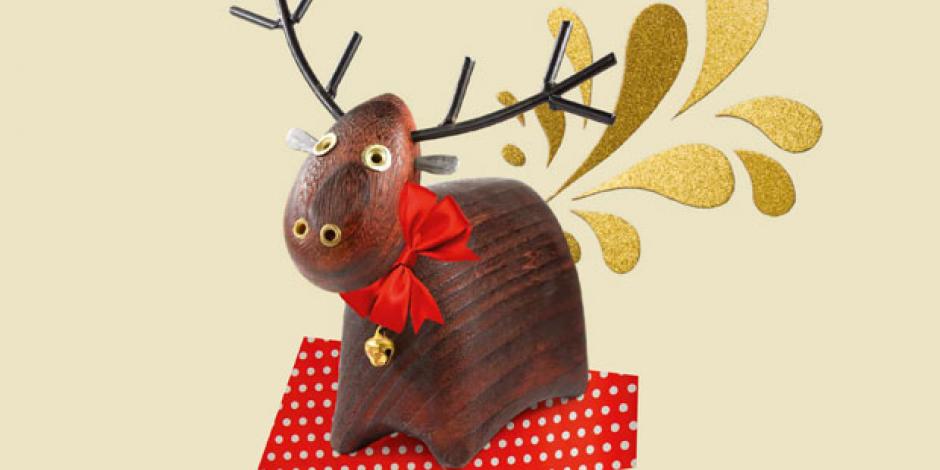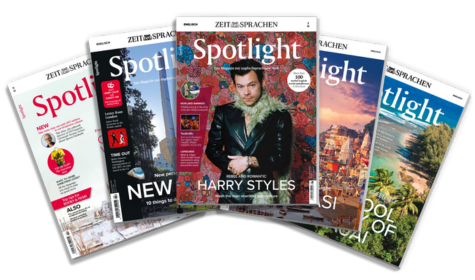In Spotlight 14/19, you can practice verb forms in the context of a fun Christmas story. Here, you find a few of the exercises along with some useful explanations about past tenses, modal verbs and gerunds.
Regular verbs
Regular verbs form their past tense with “-ed” (for example “turned”, “pulled”). Verbs ending in “-e”, simply take a “-d” (“gazed”, “settled”). Verbs ending in a vowel plus “-y” also take “-ed” (“played”), whereas verbs ending in a consonant plus “-y” form their past tense with “-ied” (“studied”).
Irregular verbs
Irregular verbs (for example “know”, “be”) have different forms in the past tense (“knew”, “was”). Their past participles also have different forms (“known”, “been”). Unfortunately, these all have to be learned. You can find a comprehensive list of irregular verbs on at spotlight-online.de/irregular-verbs.
1. Regular and irregular verbs
1. Regular and irregular verbs
MEDIUM
Modal verbs
Modal verbs are verbs such as “might”, “must”, “can”, “could” “should”, “will” and “would”. They go in front of other verbs (for example “could have”, “will tell”, “must show”). In stories, they are often found in their past form and are called “past modal verbs” (“should have spoken”, “would have been”).
2. Modal verbs
2. Modal verbs
MEDIUM
Verbs followed by a gerund
A gerund is the “-ing” form of a verb (for example “spending”, “doing”). Some verbs are followed by a gerund, as you can see in the story: “missed spending”, “imagine holding”, “avoided looking”, “bear participating” and “enjoyed preparing”. Other examples are: “admit doing”, “deny doing”, “spend time doing” and “risk doing”. You can find a list of these verbs at spotlight-online.de/gerunds-infinitives.
3. Gerund or the “to”-infinitive?
3. Gerund or the “to”-infinitive?
MEDIUM
Neugierig auf mehr?
Dann nutzen Sie die Möglichkeit und stellen Sie sich Ihr optimales Abo ganz nach Ihren Wünschen zusammen.



